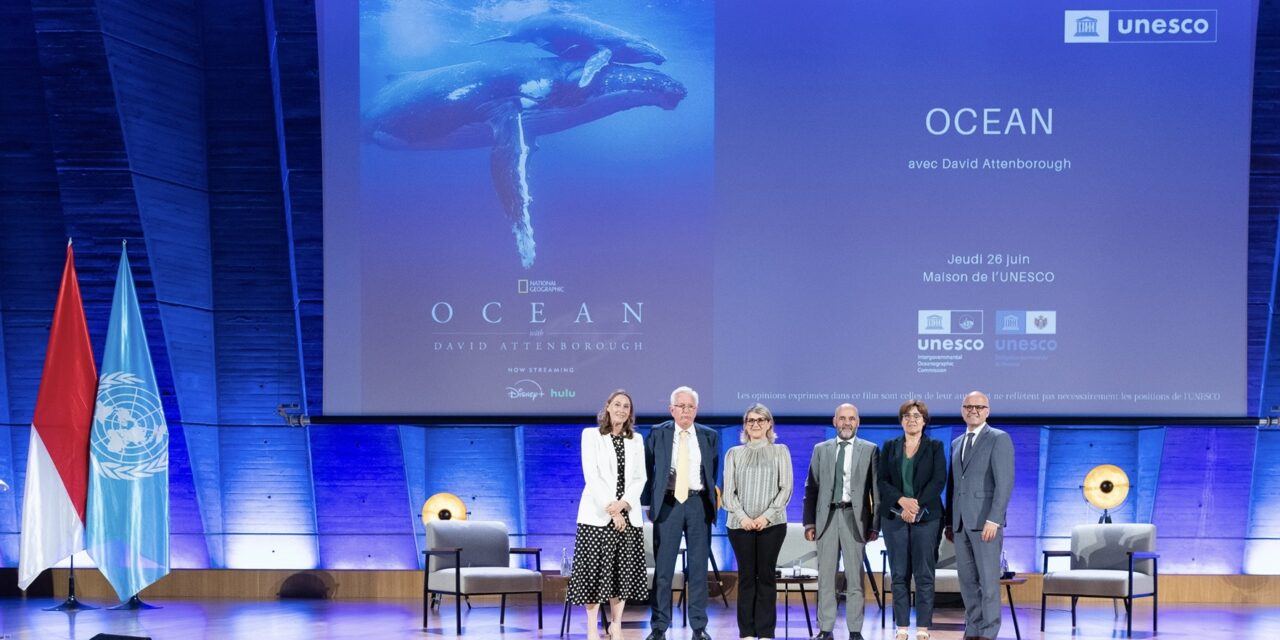The oceans took centre stage at UNESCO’s Paris headquarters on Thursday, June 26 as Monaco reaffirmed its historic commitment to marine science during a special event organised on the sidelines of the 33rd General Assembly of the Intergovernmental Oceanographic Commission (IOC).
The evening, hosted by Monaco’s Permanent Delegation to UNESCO in collaboration with the IOC, featured a screening of the acclaimed documentary Ocean with Sir David Attenborough, followed by an expert-led round table.
Opening the event, H.E. Anne-Marie Boisbouvier, Monaco’s Ambassador and Permanent Delegate to UNESCO, highlighted the Principality’s long-standing ties to ocean research, dating back to its role in the IOC’s founding in Copenhagen in 1960. She also paid tribute to Prince Albert I, regarded as a pioneer of modern oceanography. His ambitious expeditions laid the foundations for the world’s first global bathymetric map — a legacy that continues to inspire ocean mapping efforts today, particularly through the GEBCO project, which aims to chart the entire seafloor by 2030 under the joint leadership of the IOC and the International Hydrographic Organisation (IHO).
Following the film, a distinguished panel took the stage to share their insights and answer questions from the audience of over 700 attendees. Among the speakers were filmmaker and producer Keith Scholey, Dr Sylvie Tambutté, Scientific Director of the Monaco Scientific Centre, Dr Valérie Masson-Delmotte, palaeoclimatologist and research director at the Laboratory for Climate and Environmental Sciences (CEA), and Dr Rafael González-Quirós, oceanographer and director of the Oceanographic Centre of Gijón.
The lively discussion explored the beauty, fragility, and scientific mysteries of the world’s oceans, while shining a light on the cutting-edge research carried out by Monaco in the field of marine conservation. The event served as a timely reminder of the critical role of international cooperation in safeguarding the planet’s blue heart.

